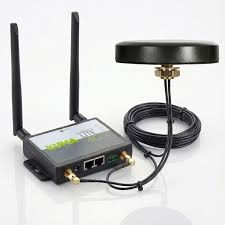UK Offshore Radio
UK Offshore/Pirate Radio Story
If you like us you are interested in offshore radio then i hope you enjoy my blog. In the waters surrounding Britain during the 1960s, a revolution was brewing—not with guns and soldiers, but with turntables and transistors. While the BBC maintained its iron grip on the airwaves with conservative programming, a fleet of rebel broadcasters took to the seas, transforming British radio forever from beyond territorial waters. These "pirates" of the airwaves would become the unlikely architects of modern British broadcasting, defying government restrictions and cultural norms to bring rock and roll to a generation starved for musical freedom. Their story represents one of the most fascinating chapters in broadcasting history, where maritime law met cultural revolution on the high seas.
The Rise and Legacy of Offshore Radio in the UK Early Independent Broadcasting Before the era of pirate radio ships, British listeners seeking entertainment alternatives to the BBC's limited programming turned to continental stations like Radio Normandy and Radio Luxembourg. These stations, broadcasting from mainland Europe, filled crucial gaps in entertainment programming, particularly on Sundays when the BBC maintained its strict policy against airing light entertainment. Associated Newspapers made an early attempt at offshore broadcasting in 1928 using the yacht Ceto, setting a precedent for what would become a revolutionary movement in British broadcasting. The Birth of Pirate Radio The landscape of British broadcasting changed dramatically on Easter 1964 when Ronan O'Rahilly launched Radio Caroline from a ship anchored in international waters off the Essex coast. This bold move marked the beginning of the offshore radio phenomenon in the UK. Soon after, other stations followed suit, including Radio Atlanta, which later merged with Radio Caroline, and Radio Veronica operating off the Dutch coast. By 1966, the waters around Britain hosted a flotilla of broadcasting ships, including Swinging Radio England and Britain Radio, all challenging the BBC's monopoly on the airwaves. Transforming British Broadcasting Pirate radio stations revolutionized British broadcasting by introducing American-style formats that the BBC had long resisted. These stations played continuous pop music, used jingles, and adopted the Top 40 format that had proven wildly successful in the United States. The impact was immediate and profound, forcing the BBC to reconsider its conservative approach to programming and eventually leading to significant reforms in British broadcasting. Cultural Revolution and Youth Movement The offshore radio phenomenon became inextricably linked with youth culture and the rock and roll movement of the 1960s. These stations provided a platform for new music that the established broadcasters largely ignored, becoming the voice of a generation seeking cultural change. DJs like Tony Blackburn, Emperor Rosko, and Kenny Everett became household names, pioneering a new style of radio presentation that would influence broadcasting for decades to come.
The Legal Battle The government's response came in the form of the Marine, &c., Broadcasting (Offences) Act 1967, which aimed to silence the pirate broadcasters by making it illegal to supply or assist these stations. Despite this legislation and international agreements like the Strasbourg Convention, some stations, particularly Radio Caroline, continued broadcasting, defying the authorities until March 1968. The persistence of these broadcasters demonstrated the deep impact they had made on British cultural life. The BBC's Response In a direct response to the popularity of pirate radio, the BBC launched Radio 1 in 1967. Many of the most popular pirate radio DJs, including Tony Blackburn and Kenny Everett, transitioned to legal broadcasting with Radio 1, bringing their distinctive style to legitimate airwaves. This move represented a significant shift in British broadcasting policy and an acknowledgment of changing public tastes. Modern Legacy The influence of offshore radio continues to resonate in modern broadcasting. Former pirate stations like Kiss FM and Rinse FM eventually became legitimate broadcasters, while Radio Caroline maintains operations in various forms today. The pioneering spirit of these early offshore broadcasters helped shape modern radio formats and demonstrated the power of popular culture to drive social change. Enduring Impact The offshore radio era represents a pivotal moment in broadcasting history, challenging established norms and paving the way for the diverse radio landscape we enjoy today. The movement's influence extended beyond music programming to affect broadcasting regulations, presentation styles, and the very nature of public service broadcasting in the UK. The legacy of these maritime broadcasters continues to inspire new generations of radio professionals and remains a testament to the transformative power of alternative media.
Looking Back: The Waves That Changed Everything The saga of offshore radio in the UK represents more than just a rebellious chapter in broadcasting history—it embodies the transformative power of cultural movements driven by passionate innovators willing to challenge the status quo. These floating radio stations did more than just play the latest hits; they fundamentally altered the relationship between media and society. Their legacy lives on not only in the diverse programming we enjoy today but in the enduring principle that when established institutions fail to meet public needs, innovation will find a way—even if that way leads to international waters. The pirates may have left the seas, but the waves they created continue to influence broadcasting's evolution. Hope you enjoyed our blog and don’t forget Radio Caroline is still on the air today (legally)

















































